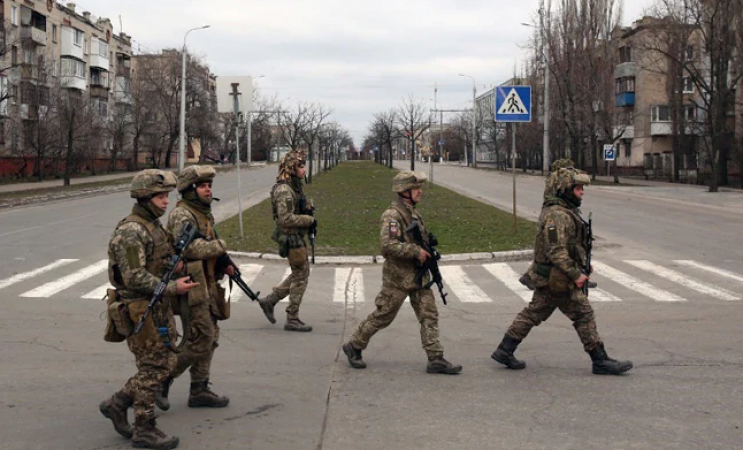
MOSCOW: Russia's economy is weathering a better-than-anticipated storm as it benefits from higher energy prices, the IMF said, despite damaging Western sanctions imposed on Moscow in the wake of Ukraine's invasion.
The sanctions were designed to cut off Moscow's access to money and isolate Russia from the international financial system.
However, despite its economy still expected to contract by 6% this year, Russia's GDP forecast for this year was raised by an impressive 2.5 percentage points in the IMF's most recent World Economic Outlook published on Tuesday was.
According to IMF chief economist Pierre-Olivier Gourinches, Russia will still be facing a major recession in 2022.
The fact that "the Russian central bank and Russian policymakers have been able to avert a banking panic or financial meltdown when sanctions were first imposed," he said, was a major factor in the recession not being as bad as anticipated.
The Russian economy is receiving "a huge amount of revenue" as a result of rising energy prices.
Oil prices for the major European benchmark Brent started below US$80 a barrel on Tuesday and fell to around US$129 in March. Conversely, natural gas prices are rising once again and are approaching their recent peak.
According to the report, "Russia's economy is projected to contract during the second quarter with crude oil and non-energy exports contracting better than expected," even though major economies such as the United States and China are slowing down. Below Due to government support, Russia's "domestic demand is also showing some resilience" despite the sanctions.
However, Gaurynchus insisted that Russia "will not recover." In fact, the IMF is "revising Russian growth in 2023," which is 1.2 points less optimistic than April's prediction of a 3.5% contraction.
He added that the cumulative effect of the sanctions is also increasing over time due to the existing penalties as well as the new sanctions announced by Europe.
According to a recent study by Yale academics, including Jeffrey Sonnenfeld, Moscow's posture of resilience or strength does not accurately reflect what is actually happening, and official data coming from Russia is unreliable.
The authors argue that the exodus of more than 1,000 multinational corporations has caused serious damage to Russia's economy.
Trade retreats and sanctions are devastatingly crippling the Russian economy, it is clear from our analysis, the authors wrote.
The departure of foreign companies from Russia has resulted in the loss of 40% of the country's GDP, and virtually none of them are expected to do so anytime soon.
This represents a reversal of foreign capital and investment that dates back almost three decades.
Russian imports "have largely collapsed," the authors said, adding that domestic production in Russia has completely stopped.
"Looking ahead, there is no way out of economic oblivion for Russia, as long as allied nations remain united in maintaining and increasing sanctions pressure," he wrote.
Russia declare seize of Ukraine's Vuhlehirska power station
China's tariff decision is unlikely to be made before the call between Joe Biden and Xi Jinping
Taliban gets a vow of economic aid from Russia, Uzbekistan